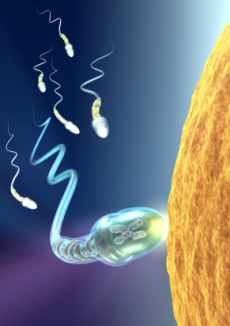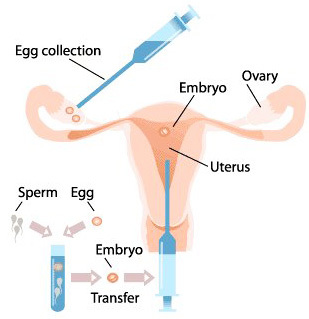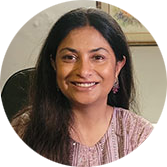INFERTILITY
What is infertility?
Infertility means not being able to get pregnant after one year of trying (or six months if a woman is 35 or older). Women who can get pregnant but are unable to stay pregnant may also be infertile.
Pregnancy is the result of a process that has many steps. To get pregnant:
A woman's body must release an egg from one of her ovaries (ovulation).
The egg must go through a fallopian tube toward the uterus (womb).
A man's sperm must join with (fertilize) the egg along the way.
The fertilized egg must attach to the inside of the uterus (implantation)
Infertility can happen if there are problems with any of these steps.

Is infertility a common problem?
Yes. About 10 percent of women (6.1 million) in the United States ages 15-44 have difficulty getting pregnant or staying pregnant, according to the Centers for Disease Control and Prevention (CDC).
Is infertility just a woman's problem?
No, infertility is not always a woman's problem. Both women and men can have problems that cause infertility. About one-third of infertility cases are caused by women's problems. Another one third of fertility problems are due to the man. The other cases are caused by a mixture of male and female problems or by unknown problems.
What causes infertility in women?
Most cases of female infertility are caused by problems with ovulation. Without ovulation, there are no eggs to be fertilized. Some signs that a woman is not ovulating normally include irregular or absent menstrual periods.
Ovulation problems are often caused by polycystic ovarian syndrome (PCOS). PCOS is a hormone imbalance problem which can interfere with normal ovulation. PCOS is the most common cause of female infertility. Primary ovarian insufficiency (POI) is another cause of ovulation problems. POI occurs when a woman's ovaries stop working normally before she is 40. POI is not the same as early menopause.
Less common causes of fertility problems in women include:
Blocked fallopian tubes due to pelvic inflammatory disease, endometriosis, or surgery for an ectopic pregnancy
Physical problems with the uterus
Uterine fibroids, which are non-cancerous clumps of tissue and muscle on the walls of the uterus.

What things increase a woman's risk of infertility?
Many things can change a woman's ability to have a baby. These include:
Age
Smoking
Excess alcohol use
Stress
Poor diet
Athletic training
Being overweight or underweight
Sexually transmitted infections (STIs)
Health problems that cause hormonal changes, such as polycystic ovarian syndrome and primary ovarian insufficiency
How does age affect a woman's ability to have children?
Many women are waiting until their 30s and 40s to have children. In fact, about 20 percent of women in the United States now have their first child after age 35. So age is a growing cause of fertility problems. About one-third of couples in which the woman is over 35 have fertility problems.
Aging decreases a woman's chances of having a baby in the following ways:
Her ovaries become less able to release eggs
She has a smaller number of eggs left
Her eggs are not as healthy
She is more likely to have health conditions that can cause fertility problems
She is more likely to have a miscarriage

How long should women try to get pregnant before calling their doctors?
Most experts suggest at least one year. Women 35 or older should see their doctors after six months of trying. A woman's chances of having a baby decrease rapidly every year after the age of 30.
Some health problems also increase the risk of infertility. So, women should talk to their doctors if they have:
Irregular periods or no menstrual periods
Very painful periods
Endometriosis
Pelvic inflammatory disease
More than one miscarriage
It is a good idea for any woman to talk to a doctor before trying to get pregnant. Doctors can help you get your body ready for a healthy baby. They can also answer questions on fertility and give tips on conceiving.
How will doctors find out if a woman and her partner have fertility problems?
Doctors will do an infertility checkup. This involves a physical exam. The doctor will also ask for both partners' health and sexual histories. Sometimes this can find the problem. However, most of the time, the doctor will need to do more tests.
In men, doctors usually begin by testing the semen. They look at the number, shape, and movement of the sperm. Sometimes doctors also suggest testing the level of a man's hormones
Hysterosalpingography (HIS-tur-oh-sal-ping-GOGH-ru-fee): This is an x-ray of the uterus and fallopian tubes. Doctors inject a special dye into the uterus through the vagina. This dye shows up in the x-ray. Doctors can then watch to see if the dye moves freely through the uterus and fallopian tubes. This can help them find physical blocks that may be causing infertility. Blocks in the system can keep the egg from moving from the fallopian tube to the uterus. A block could also keep the sperm from reaching the egg.
Laparoscopy (lap-uh-ROS-kuh-pee): A minor surgery to see inside the abdomen. The doctor does this with a small tool with a light called a laparoscope (LAP-uh-roh-skohp). She or he makes a small cut in the lower abdomen and inserts the laparoscope. With the laparoscope, the doctor can check the ovaries, fallopian tubes, and uterus for disease and physical problems. Doctors can usually find scarring and endometriosis by laparoscopy.
Finding the cause of infertility can be a long and emotional process. It may take time to complete all the needed tests. So don't worry if the problem is not found right away.
Infertility can be treated with medicine, surgery, artificial insemination, or assisted reproductive technology. Many times these treatments are combined. In most cases infertility is treated with drugs or surgery.

Doctors recommend specific treatments for infertility based on:
Test results
How long the couple has been trying to get pregnant
The age of both the man and woman
The overall health of the partners
Preference of the partners





